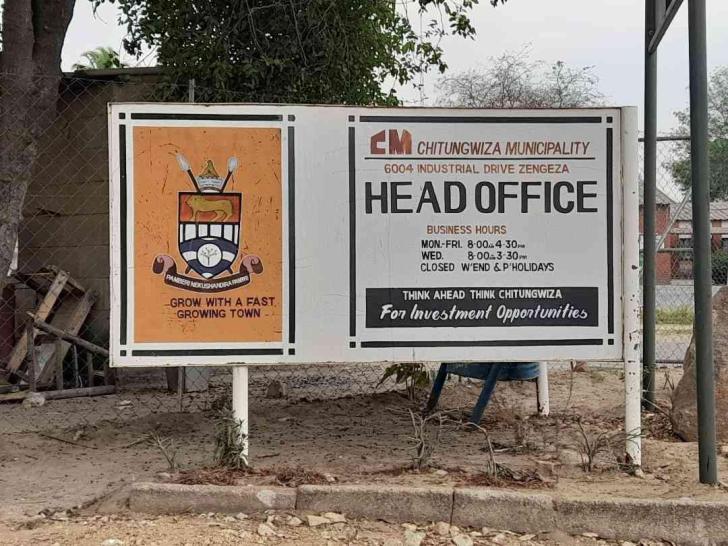News / National
Chitungwiza in door-to-door drive to recover ZiG160m
07 Oct 2024 at 07:04hrs |
0 Views

The Chitungwiza Municipality has initiated a door-to-door exercise aimed at recovering approximately ZW$160 million owed by ratepayers. The program commenced on October 3 and will run until October 17, with officials emphasizing the convenience it brings to residents and businesses alike.
According to the acting town clerk, Japson Nemuseso, the initiative will see municipal teams equipped with point-of-sale machines visiting residential areas and business centers. This allows residents to pay their bills from the comfort of their homes or workplaces. The teams comprise uniformed municipal police officers and cashiers, accepting cash payments on-site.
In an interview, Chitungwiza Municipality spokesperson Tafadzwa Kachiko revealed that as of August 31, the council was owed ZW$159 million. The blitz targets residential, commercial, institutional, and industrial properties, with a particular focus on those that have defaulted on payments. Kachiko explained that the previous approach of waiting for residents to visit banking halls proved ineffective.
"We understand that residents may have other commitments leading to payment defaults. This door-to-door exercise aims to improve our cash flow by bringing payment services directly to them," Kachiko said. He indicated that the initiative targets at least 30,000 properties.
Kachiko acknowledged potential challenges with internet connectivity during the exercise, noting that ongoing efforts to upgrade payment systems have been hampered by insufficient funding. He reiterated that ratepayers could still utilize various payment options available at banks.
Chitungwiza faces significant service delivery challenges that require financial resources, which are currently constrained. "For instance, when we receive reports of sewer bursts, we need funds to quickly attend to these issues. Timely payment from ratepayers is crucial to ensure we can maintain service delivery, including refuse collection and drain clearance," he added.
However, some community leaders have raised concerns regarding the initiative. Tendai Mareya, chairperson of the Chitungwiza Business Community Trust, suggested that the council should have consulted residents and ratepayers on how best to implement the recovery blitz. "While it could generate more revenue for the council, it's essential to ensure that genuine council officials are conducting these visits to avoid potential scams," he cautioned.
As the door-to-door recovery initiative unfolds, the municipality remains hopeful that the new approach will bolster its financial resources and enhance service delivery for the residents of Chitungwiza.
According to the acting town clerk, Japson Nemuseso, the initiative will see municipal teams equipped with point-of-sale machines visiting residential areas and business centers. This allows residents to pay their bills from the comfort of their homes or workplaces. The teams comprise uniformed municipal police officers and cashiers, accepting cash payments on-site.
In an interview, Chitungwiza Municipality spokesperson Tafadzwa Kachiko revealed that as of August 31, the council was owed ZW$159 million. The blitz targets residential, commercial, institutional, and industrial properties, with a particular focus on those that have defaulted on payments. Kachiko explained that the previous approach of waiting for residents to visit banking halls proved ineffective.
"We understand that residents may have other commitments leading to payment defaults. This door-to-door exercise aims to improve our cash flow by bringing payment services directly to them," Kachiko said. He indicated that the initiative targets at least 30,000 properties.
Kachiko acknowledged potential challenges with internet connectivity during the exercise, noting that ongoing efforts to upgrade payment systems have been hampered by insufficient funding. He reiterated that ratepayers could still utilize various payment options available at banks.
Chitungwiza faces significant service delivery challenges that require financial resources, which are currently constrained. "For instance, when we receive reports of sewer bursts, we need funds to quickly attend to these issues. Timely payment from ratepayers is crucial to ensure we can maintain service delivery, including refuse collection and drain clearance," he added.
However, some community leaders have raised concerns regarding the initiative. Tendai Mareya, chairperson of the Chitungwiza Business Community Trust, suggested that the council should have consulted residents and ratepayers on how best to implement the recovery blitz. "While it could generate more revenue for the council, it's essential to ensure that genuine council officials are conducting these visits to avoid potential scams," he cautioned.
As the door-to-door recovery initiative unfolds, the municipality remains hopeful that the new approach will bolster its financial resources and enhance service delivery for the residents of Chitungwiza.
Source - newsday
Join the discussion
Loading comments…


































